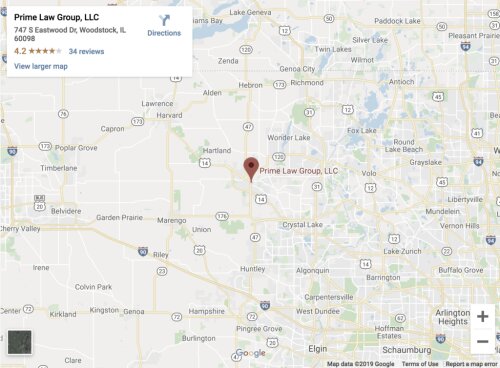Best Personal Injury Lawyers in Alabama
Share your needs with us, get contacted by law firms.
Free. Takes 2 min.
Or refine your search by selecting a city:
List of the best lawyers in Alabama, United States
About Personal Injury Law in Alabama, United States
Personal injury law covers a range of situations where an individual is harmed due to the negligent or intentional actions of another party. In Alabama, personal injury claims may arise from car accidents, slip and falls, medical malpractice, product defects, workplace accidents, and more. The primary objective of personal injury law is to help the injured party recover compensation for medical expenses, lost wages, pain and suffering, and other damages resulting from the injury. If you are injured and believe someone else is at fault, you may be entitled to pursue a personal injury claim under Alabama law.
Why You May Need a Lawyer
A personal injury attorney can help you navigate the complex legal process and work toward securing fair compensation for your injuries. You may need a lawyer in situations such as:
- When liability is disputed and the other party denies fault
- When you suffer serious or long-term injuries requiring extensive medical treatment
- When multiple parties or insurance companies are involved
- If the insurance company offers a low settlement or denies your claim
- When the legal process feels overwhelming or confusing
- When deadlines for filing a claim are approaching or have passed
An experienced attorney can review your case, collect evidence, negotiate with insurance companies, and represent your interests in court if necessary.
Local Laws Overview
Alabama has several laws that are particularly important to know if you are considering a personal injury claim:
- Contributory Negligence: Alabama follows the strict doctrine of contributory negligence. If you are found to be even slightly at fault (as little as 1 percent) for your own injuries, you may be barred from recovering any compensation.
- Statute of Limitations: You generally have two years from the date of the injury to file a personal injury lawsuit in Alabama. There are some exceptions for minors or certain types of claims, but missing this deadline can mean losing your right to compensation.
- Damages: Alabama law allows injured parties to recover both economic damages (medical bills, lost wages, property damage) and non-economic damages (pain and suffering, emotional distress). In cases involving reckless behavior or intentional harm, punitive damages may also be awarded.
- Caps on Damages: Alabama has limits on punitive damages and damages in some medical malpractice cases.
- Insurance Requirements: Alabama requires drivers to carry minimum liability insurance, but victims may still face uninsured or underinsured motorists.
Understanding these laws can influence your legal strategy and the likelihood of recovering compensation.
Frequently Asked Questions
What should I do immediately after an accident or injury?
Seek medical attention right away, report the incident to the proper authorities, gather evidence (such as photos, witness information, and accident reports), and contact a personal injury attorney for a consultation.
How long do I have to file a personal injury claim in Alabama?
You generally have two years from the date of injury to file a lawsuit. Missing this deadline usually bars you from seeking compensation.
What is contributory negligence and how does it affect my claim?
Alabama's contributory negligence rule means that if you are found even slightly responsible for the accident, you may not recover any damages from the other party.
What types of damages can I recover?
You may recover economic damages such as medical expenses and lost wages, as well as non-economic damages like pain and suffering. Punitive damages might be available in cases of intentional or extreme misconduct.
What if the other party does not have insurance?
You may still have options to pursue compensation through your own uninsured or underinsured motorist coverage, or by suing the responsible party directly.
How is the value of my personal injury claim determined?
Claim value is based on medical expenses, lost wages, pain and suffering, property damage, future expenses, and sometimes punitive damages.
Can I still file a claim if I was partly at fault?
In most cases, no. Alabama's contributory negligence rule bars recovery if you share any fault for the accident.
What happens if the insurance company denies my claim?
If your claim is denied, you can appeal the decision, negotiate further, or file a lawsuit with the assistance of a personal injury attorney.
How much does it cost to hire a personal injury lawyer?
Many personal injury lawyers in Alabama work on a contingency fee basis, meaning they only get paid if you recover compensation, typically as a percentage of your recovery.
Do I have to go to court to win my case?
Most personal injury cases settle out of court, but if a fair agreement cannot be reached, your case may need to go before a judge or jury.
Additional Resources
If you need more information or assistance regarding personal injury cases in Alabama, consider contacting or researching the following organizations:
- Alabama State Bar Association - provides lawyer referrals and legal resources
- Alabama Department of Insurance - for issues regarding insurance claims
- Local legal aid organizations - may offer free or reduced-cost legal services to those who qualify
- National organizations like the American Association for Justice for general information on personal injury law
- Court clerks at your local county courthouse for guidance on filing claims or accessing records
Next Steps
If you believe you have a personal injury claim or need legal assistance:
- Document all details related to your accident or injury, including medical records, photos, receipts, and witness information.
- Consult with a qualified personal injury attorney in Alabama as soon as possible to discuss your situation and protect your rights.
- Be aware of deadlines and keep track of important documents and correspondence related to your case.
- Stay organized and maintain communication with your legal counsel and healthcare providers.
Understanding your legal rights and acting swiftly can make all the difference in a personal injury case. An experienced attorney can help guide you through each step and work to secure the compensation and support you deserve.
Lawzana helps you find the best lawyers and law firms in Alabama through a curated and pre-screened list of qualified legal professionals. Our platform offers rankings and detailed profiles of attorneys and law firms, allowing you to compare based on practice areas, including Personal Injury, experience, and client feedback.
Each profile includes a description of the firm's areas of practice, client reviews, team members and partners, year of establishment, spoken languages, office locations, contact information, social media presence, and any published articles or resources. Most firms on our platform speak English and are experienced in both local and international legal matters.
Get a quote from top-rated law firms in Alabama, United States — quickly, securely, and without unnecessary hassle.
Disclaimer:
The information provided on this page is for general informational purposes only and does not constitute legal advice. While we strive to ensure the accuracy and relevance of the content, legal information may change over time, and interpretations of the law can vary. You should always consult with a qualified legal professional for advice specific to your situation.
We disclaim all liability for actions taken or not taken based on the content of this page. If you believe any information is incorrect or outdated, please contact us, and we will review and update it where appropriate.
Browse personal injury law firms by city in Alabama
Refine your search by selecting a city.
















